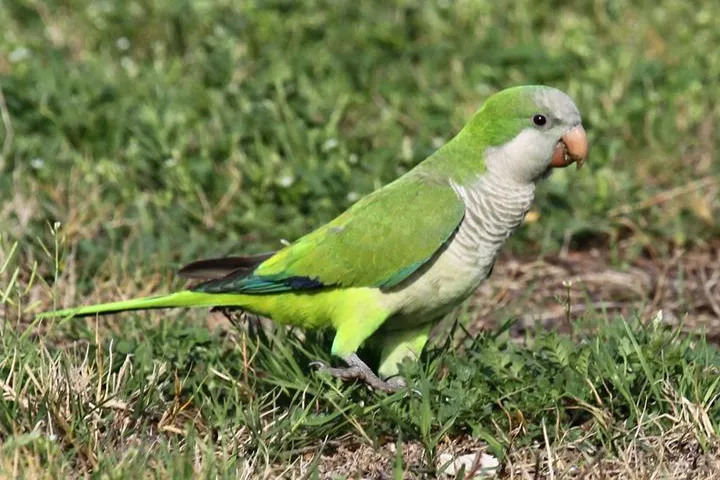Quaker parrots, also known as monk parakeets or Quaker parakeets, are small, beautiful birds that have become increasingly popular as pets in recent years. These social and intelligent creatures are native to South America but have been introduced to many parts of the world, including the United States. In this article, we will explore what Quaker parrots are, their characteristics, behavior, and how to care for them as pets.
What Are Quaker Parrots?
Quaker parrots are small, bright green birds that belong to the parrot family. They are around 12 inches long from beak to tail and weigh about 100-130 grams. They have a distinctive grey face and throat, a bright green body, and a long tail. Their lifespan ranges from 20-30 years, making them a long-term commitment as pets.
Characteristics of Quaker Parrots
These curious and playful birds are well-known for their distinctive personalities. They are highly intelligent and social, which makes them great companions. They are also very vocal and can learn to mimic human speech and other sounds with ease. This ability has made them popular in the pet trade. Quaker parrots are active and love to play, so they require plenty of toys and interaction to keep them entertained.
Behavior of Quaker Parrots
Quaker parrots are highly social creatures and thrive on interaction with their owners. They are happiest when they are able to spend time outside of their cages, playing with their owners or other birds. They can be trained to do tricks and can even learn to fetch like a dog. However, they can also become noisy and destructive if they are not given enough attention or stimulation.
Quaker parrots are also known for being territorial and can become aggressive towards other birds. Therefore, it is best to keep them in a single bird household or introduce them to other birds gradually and under close supervision.
Housing of Quaker Parrots
Quaker Parrots require a spacious cage that allows them to move around freely. The cage should be at least 18 inches wide, 18 inches deep, and 24 inches tall. The cage should also be equipped with perches of varying sizes, as well as toys and other enrichment items. Quaker Parrots are very active birds, so they require plenty of room to play and exercise.
Diet of Quaker Parrots
Quaker Parrots require a varied and balanced diet that includes a mixture of seeds, fruits, vegetables, and pellets. Fresh fruits and vegetables should make up a significant portion of their diet, with seeds and pellets provided in moderation. Quaker Parrots are prone to obesity, so it is important to monitor their food intake and provide plenty of opportunities for exercise.
Health of Quaker Parrots
Quaker Parrots are generally healthy birds, but they can be prone to certain health issues. Some of the most common health issues in Quaker Parrots include obesity, respiratory infections, and feather plucking. It is important to provide your Quaker Parrot with regular veterinary care to prevent and treat any health issues that may arise.
Caring for Quaker Parrots
Quaker parrots are relatively easy to care for and make great pets for both experienced and first-time bird owners. They require a large cage with plenty of toys and perches to keep them entertained. A varied diet that includes pellets, fresh fruits and vegetables, and seeds is recommended. It is important to avoid feeding them avocado, chocolate, and caffeine as these foods can be toxic to birds.
Quaker parrots require regular grooming, which involves trimming their nails and wings to keep them healthy and prevent injury. They also need plenty of mental stimulation and social interaction to remain happy and healthy. Therefore, it is crucial to spend time with them every day, playing and talking to them.
Conclusion
In conclusion, Quaker parrots are fascinating creatures that make wonderful companions for bird lovers. They are highly intelligent, social, and playful, which makes them great fun to interact with. However, they require a significant amount of attention and care to thrive, so it is important to be prepared for the responsibility that comes with owning one. With proper care and attention, these birds can live long and happy lives as beloved members of the family.


 Facebook
Facebook  Instagram
Instagram  Youtube
Youtube 